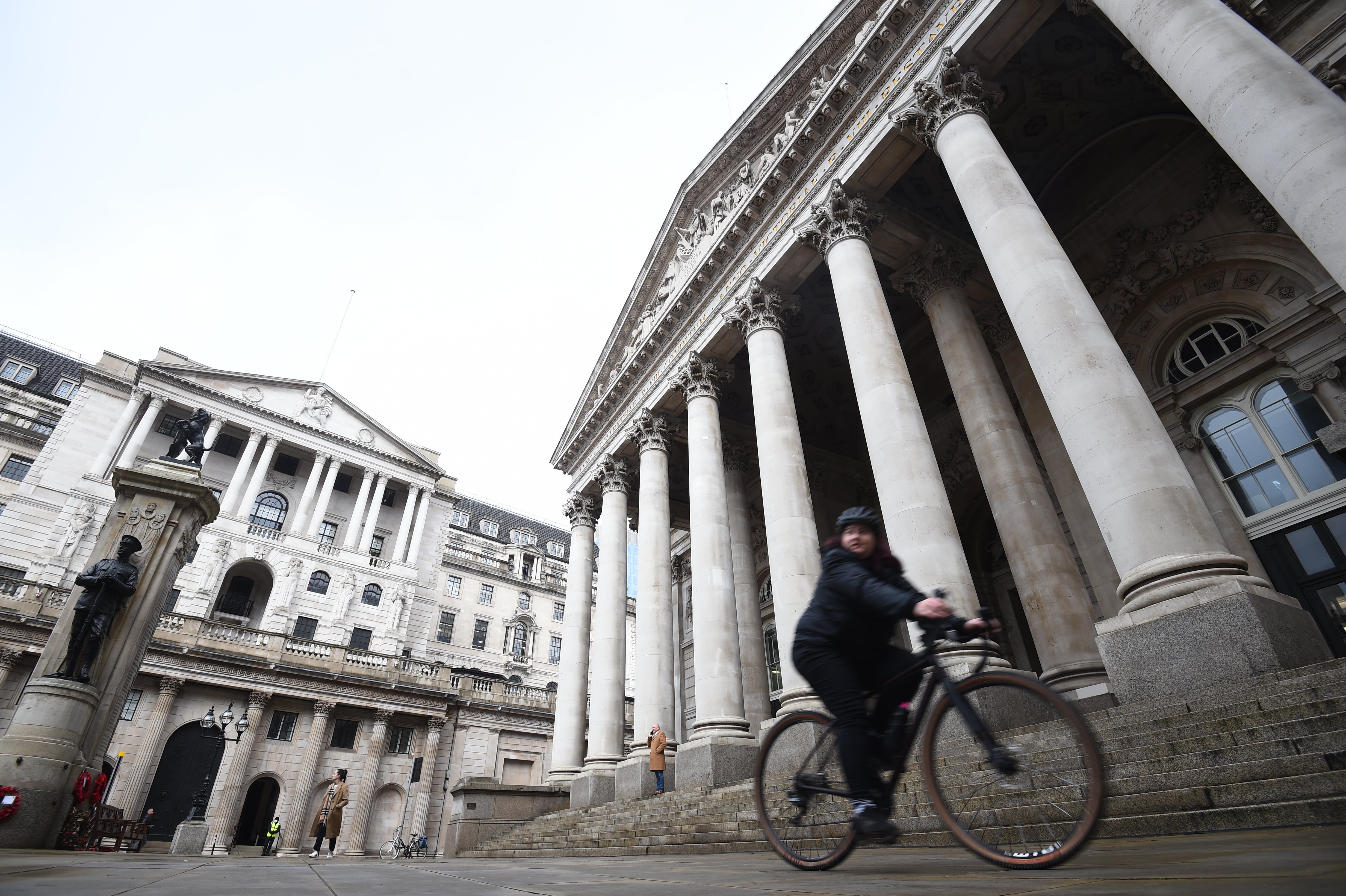Bank has become ‘addicted’ to QE and must outline risks, warn Lords
The Economic Affairs Committee calls on the Bank of England to become more transparent over its use of quantitative easing.

Your support helps us to tell the story
From reproductive rights to climate change to Big Tech, The Independent is on the ground when the story is developing. Whether it's investigating the financials of Elon Musk's pro-Trump PAC or producing our latest documentary, 'The A Word', which shines a light on the American women fighting for reproductive rights, we know how important it is to parse out the facts from the messaging.
At such a critical moment in US history, we need reporters on the ground. Your donation allows us to keep sending journalists to speak to both sides of the story.
The Independent is trusted by Americans across the entire political spectrum. And unlike many other quality news outlets, we choose not to lock Americans out of our reporting and analysis with paywalls. We believe quality journalism should be available to everyone, paid for by those who can afford it.
Your support makes all the difference.The Bank of England has become “addicted” to quantitative easing and must spell out the risks of its bond-buying programme and plans to wean itself off it, a Lords committee has warned.
A report by the Economic Affairs Committee calls on the Bank to become more transparent over its use of quantitative easing (QE), as it warns the £895 billion programme may be sending inflation spiralling and become a “serious danger” to public finances.
It warned the Bank’s independence is being called into question as its money-printing programme is increasingly being viewed as a tool to finance the Government’s coronavirus spending.
The Bank of England has become addicted to quantitative easing. It appears to be its answer to all the country’s economic problems
The study – the first parliamentary report into QE in the world – cautions this perceived role could tie its hands to raise interest rates to tackle surging inflation and potentially see the Bank “lose credibility”.
Committee chair Lord Forsyth who is also chairman of Secure Trust Bank, said: “The Bank of England has become addicted to quantitative easing.
“It appears to be its answer to all the country’s economic problems and by the end of 2021, the Bank will own an eye-watering £875 billion of Government bonds and £20 billion in corporate bonds.
“The scale and persistence of QE – now equivalent to 40% of GDP – requires significant scrutiny and accountability.
“However, the Bank has faced few questions until now.
“Going forwards, the Bank must be more transparent, justify the use of QE and show its working.”
The committee, whose members include former Bank of England governor Lord Mervyn King wants the Bank to set out a plan on how QE could be unwound and also to explain its view that rocketing inflation is only temporary.
Inflation hit a near three-year high in June and there are fears QE could be stoking rising prices.
Rising inflation poses a long-term threat to the public finances by exposing the Government to higher debt costs if interest rates need to be hiked, according to the report.
Central banks worldwide have used QE to bolster economies since the 2009 financial crisis began as an additional tool to interest rate cuts.
Not only does it increase the supply of money and cut lending rates, it also has the added benefit of reducing borrowing costs for governments – seen as crucial during the recent huge support efforts during the pandemic.
But it has been controversial for boosting asset prices – such as housing costs – and widening the gap between rich and poor, while also calling into question the independence of central banks given the direct benefit to governments.
The committee wants the Bank to “do more to mitigate widening wealth inequalities” caused by QE.
But at the heart of its recommendations is a call for the Bank to be more transparent about QE and its risks, suggesting regular assessments and updates provided in minutes of each policy meeting.
In the report, it claims the “level of detail published by the Bank on how QE affects the economy is not sufficient to enable Parliament and the public to hold it to account”.
Speaking to the PA news agency, Mr Forsyth said: “It’s not enough anymore to say ‘trust us, we know what we’re doing and we’d rather not explain it’.
“The time has come for far more accountability.”
The Bank of England refuted suggestions it was using QE to finance the Government’s deficit.
In a strongly worded statement, a spokesman said: “QE, and the package of other measures announced over the past 18 months, have lowered borrowing costs right across the economy, providing much needed support to all borrowers at a time of extreme economic stress.
“It is wrong to suggest that the Monetary Policy Committee has pursued another policy, namely to finance the Government’s borrowing during the crisis.
“The evidence does not support this assertion. Nor has the MPC ever suggested this was its policy.”